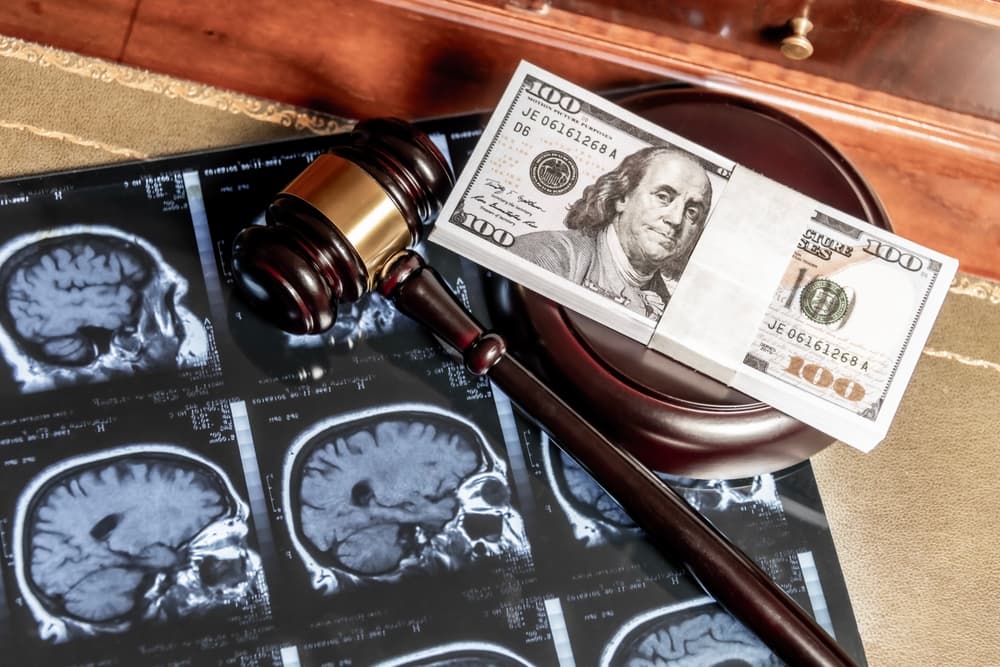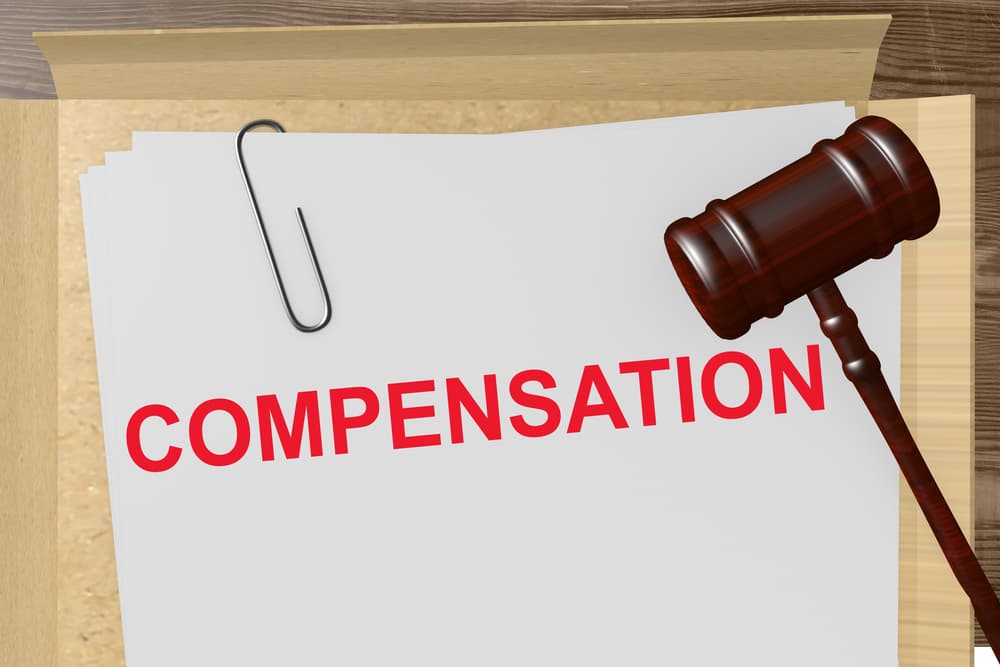When motor vehicle operators, medical providers, and premises owners behave negligently, serious accidents and injuries may result. One of the most common injuries that can occur is a traumatic brain injury, or TBI. TBIs may result in extensive pain, not to mention ongoing medical treatment and costs. In addition to recovering compensation for past and anticipated medical expenses, TBI victims can pursue compensation for all of their pain, suffering, and inconvenience.
The amount of compensation that an accident victim receives for pain and suffering will depend on the severity of their TBI and the effects that the TBI has had – and may continue to have – on their life. Every case is different, and compensation amounts can vary significantly. A skilled TBI attorney can file a personal injury claim on your behalf and aggressively pursue the compensation you deserve for your accident-related pain and suffering.
Accidents that Frequently Lead to TBIs

TBIs can result from various incidents due to someone else’s negligence. One common cause is motor vehicle accidents. When a driver is distracted, speeding, or driving under the influence, their recklessness can lead to serious collisions, resulting in TBIs for other drivers, passengers, or pedestrians.
Another cause is falls, often due to unsafe conditions in public or private spaces. For instance, if a property owner fails to fix broken steps or clear icy walkways, visitors can slip and suffer head injuries. Negligent maintenance of safety features like handrails can also lead to falls.
Sports injuries are another significant source of TBIs. Coaches, trainers, and event organizers who fail to enforce safety rules or provide proper equipment put athletes at risk. Inadequate supervision during high-contact sports can also lead to severe head injuries.
Workplace accidents also contribute to TBIs. Employers are responsible for providing a safe working environment. Negligence in adhering to safety protocols, providing necessary training, or maintaining equipment can result in accidents that cause severe head trauma.
Additionally, assaults can cause TBIs. If a venue fails to provide adequate security, patrons may become victims of violence, leading to head injuries.
Getting Ongoing Treatment for a TBI
When a TBI occurs due to someone else’s negligence, the treatment process becomes critical not only for the victim’s recovery but also in the context of potential legal action.
- Initial Emergency Care – The first step in treating a TBI is emergency medical care, often provided at the scene of the accident or in an emergency room. This includes stabilizing the patient, preventing further injury, and assessing the severity of the TBI. Imaging tests such as CT scans or MRIs are commonly used to identify the extent of the brain damage.
- Surgical Interventions – In cases of severe TBI, surgery may be required. Procedures can range from removing blood clots (hematomas) and repairing skull fractures to relieving pressure on the brain by creating a window in the skull (craniotomy). These interventions are crucial for preventing further damage and stabilizing the patient.
- Intensive Care and Monitoring – After initial treatment, patients with severe TBIs are often admitted to intensive care units (ICUs) for close monitoring. This includes managing intracranial pressure, ensuring adequate oxygen supply to the brain, and preventing infections or complications.
- Rehabilitation Services – Rehabilitation is a critical component of TBI recovery, addressing both physical and cognitive impairments. Physical therapy helps patients regain motor skills, coordination, and strength. Occupational therapy focuses on improving daily living activities and adapting to new physical limitations. Speech and language therapy assists with communication issues and swallowing difficulties. Cognitive rehabilitation targets memory, attention, and problem-solving skills.
- Medication Management – Medications play a significant role in managing symptoms and preventing complications. Pain relievers, anti-seizure drugs, and medications to reduce brain swelling are commonly prescribed. In some cases, antidepressants or anti-anxiety medications may be needed to address emotional and psychological effects of the injury.
- Psychological Support – Emotional and psychological support is essential for TBI patients. Therapy can help individuals cope with changes in their cognitive and physical abilities, address depression or anxiety, and provide strategies for managing stress.
- Long-Term Care and Support – For some individuals, long-term care may be necessary. This can include home healthcare services, assisted living arrangements, and continuous medical supervision.
An experienced TBI lawyer can help you recover compensation not just for your medical expenses but also for the pain and suffering you endured because of your injury and ongoing medical treatment.
Proving Pain and Suffering in a TBI Claim or Lawsuit

Proving pain and suffering in a TBI claim or lawsuit is a crucial aspect of securing fair compensation for the accident victim. Pain and suffering encompass both the physical discomfort and the emotional distress resulting from the injury. Here are the key elements involved in proving these damages:
- Medical Evidence – Medical records are fundamental in establishing the extent of pain and suffering. These records include doctor’s notes, hospital reports, diagnostic tests, and treatment plans. Detailed documentation of the injury, the treatments administered, and the ongoing medical care is essential. Testimony from treating physicians about the severity of the TBI and the expected long-term effects can significantly bolster a claim.
- Expert Testimony – In addition to treating physicians, expert witnesses such as neurologists, neuropsychologists, and rehabilitation specialists can provide valuable insights. These experts can explain the intricacies of the injury, the expected recovery process, and the potential for permanent disabilities. Their professional opinions can help to establish the connection between the TBI and the victim’s pain and suffering.
- Personal Testimony – The victim’s own testimony about their experience is crucial. Describing the daily challenges, physical pain, and emotional struggles helps to illustrate the true effect of the TBI. This personal account should cover changes in lifestyle, difficulties in performing everyday tasks, and the emotional toll of the injury.
- Witness Statements – Statements from family members, friends, and colleagues can corroborate the victim’s claims. These witnesses may describe observable changes in the victim’s behavior, mood, and ability to function. Their perspectives provide a more comprehensive view of how the TBI has affected the victim’s life.
- Psychological Evaluations – Psychological assessments and therapy notes can help demonstrate the emotional and mental effects of the TBI. Conditions such as depression, anxiety, and post-traumatic stress disorder (PTSD) are common in TBI victims. Documenting these issues through professional evaluations can support claims of emotional suffering.
- Impact on Quality of Life – Evidence of how the TBI has diminished the victim’s quality of life is critical. This includes the inability to participate in hobbies, sports, social activities, and other previously enjoyed pursuits. Showing how the injury has altered the victim’s lifestyle helps quantify pain and suffering.
- Visual Evidence – Photographs and videos can be powerful tools in illustrating the extent of the injury and the challenges faced during recovery. Visual documentation of the immediate aftermath, medical treatments, and ongoing rehabilitation can make the pain and suffering more tangible to a jury or insurance adjuster.
Thoroughly demonstrating these elements can lead to a successful outcome, securing fair compensation for the TBI victim.
Will my TBI Case go to Court?

Deciding whether to pursue litigation in a TBI case is a significant decision that involves several factors. It is essential to weigh the potential benefits and drawbacks to make an informed choice.
- The severity of the Injury – The severity of the TBI is a primary consideration. Some TBIs, such as concussions with quick recovery times, may not justify the effort and expense of litigation. However, if the TBI has resulted in long-term or permanent disabilities, substantial medical costs, and significant effects on quality of life, pursuing litigation becomes more compelling.
- Evidence of Negligence – Successful litigation hinges on proving that the injury resulted from someone else’s negligence. Clear evidence that the at-fault party’s actions or lack of actions directly led to the TBI is crucial. This may include witness statements, accident reports, and expert testimony. If the evidence strongly supports your claim, pursuing litigation can be a viable option.
- Financial Considerations – Many personal injury attorneys work on a contingency fee basis, meaning they only get paid if you win the case. This arrangement can make litigation more accessible, but it’s essential to understand the percentage of the settlement or award the attorney will take.
- Effects on Quality of Life – A TBI can significantly alter your quality of life, affecting your ability to work, engage in activities, and maintain relationships. If the injury has caused profound changes, pursuing litigation may be necessary to secure compensation for lost income, medical expenses, and pain and suffering. A successful lawsuit can provide financial stability and support for ongoing care and rehabilitation.
- Settlement Offers – Before deciding to litigate, consider any settlement offers from the responsible party or their insurance company. Sometimes, a fair settlement can be reached without going to court, saving time and stress. However, if the offer does not adequately cover your losses and future needs, litigation might be the best route to ensure fair compensation.
- Legal Counsel – Consulting with an experienced personal injury attorney is crucial. A knowledgeable lawyer can evaluate the merits of your case, provide guidance on the likelihood of success, and help you understand the potential outcomes.
Factors that Determine Compensation for Pain and Suffering in a TBI Case
Determining compensation for pain and suffering in a TBI case involves evaluating several factors that reflect the injury’s effect on the victim’s life. Some of the most important factors include:
- Severity of the Injury – The overall extent of the TBI plays a crucial role in determining compensation. More severe injuries that result in long-term or permanent disabilities generally lead to higher compensation. Medical records, imaging tests, and expert testimony all help to establish the injury’s severity.
- Effects on Daily Life – How a TBI affects the victim’s ability to perform daily activities is another key factor. This includes challenges in personal care, work, and leisure activities. The greater the effect on the victim’s life, the higher the compensation for pain and suffering is likely to be.
- Duration of Suffering – The length of time the victim experiences pain and suffering also influences compensation. Chronic pain or long-term emotional distress typically warrants higher compensation compared to temporary discomfort.
- Emotional and Psychological Effect – TBIs often lead to emotional and psychological issues such as anxiety, depression, and PTSD. Documenting these effects through psychological evaluations and therapy notes can support higher compensation for pain and suffering.
- Age and Life Expectancy – The victim’s age and life expectancy are also considered when determining compensation for pain and suffering. Younger victims with a longer expected lifespan may receive higher compensation to account for the prolonged effect of the injury on their future.
- Loss of Enjoyment of Life – This type of damage includes the inability to participate in hobbies, sports, and other activities that previously brought joy and fulfillment. Evidence of this loss can come from personal testimony by the victim and witness statements.

Compensation that may be recoverable for a TBI include:
- Medical Expenses – Victims can recover compensation for current and future medical costs, including hospital bills, surgeries, medications, and rehabilitation services.
- Lost Earnings – If the TBI prevents the victim from working, they can claim compensation for lost income. This includes both past and future earnings.
- Pain and Suffering – This type of compensation addresses the physical pain and emotional distress directly resulting from the TBI.
- Loss of Consortium – Spouses and family members may receive compensation for the loss of companionship, support, and intimacy resulting from the victim’s TBI.
- Punitive Damages – In cases of gross negligence or intentional harm, punitive damages may be awarded to punish the responsible party and deter similar conduct in the future.
Understanding these factors and the available compensation helps ensure that TBI victims receive the full financial recovery they deserve.
Speak with an Experienced Brain Injury Lawyer Today
If you or a person you love recently sustained a TBI due to someone else’s negligence, a skilled personal injury lawyer in your area can help. Your attorney can review the medical documentation in your case, file a timely claim or lawsuit on your behalf, and pursue the pain and suffering compensation you need. Consultations are free, so schedule yours today with a trusted brain injury attorney.


